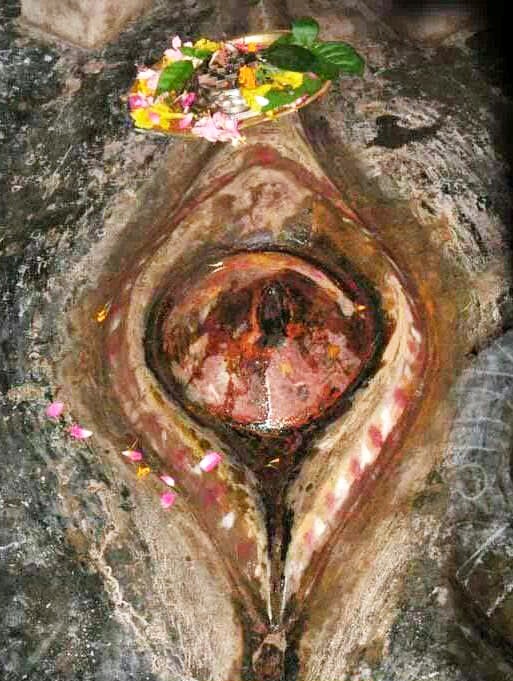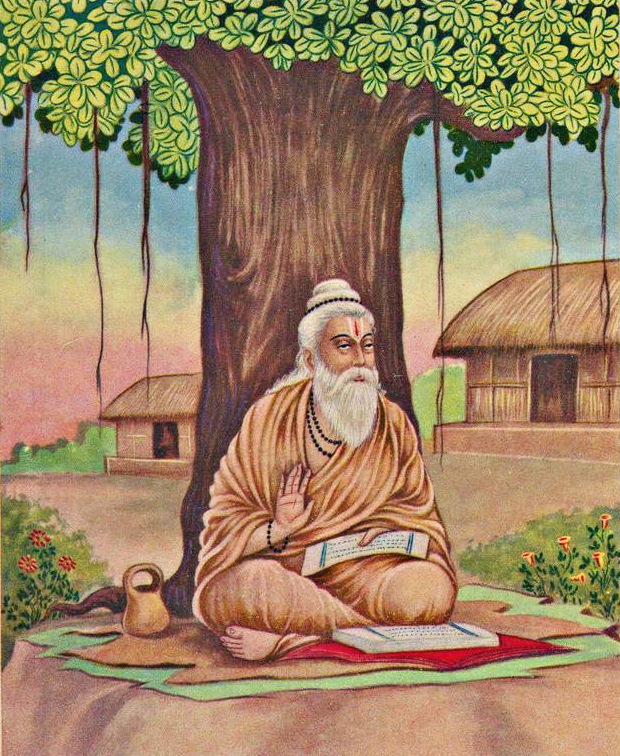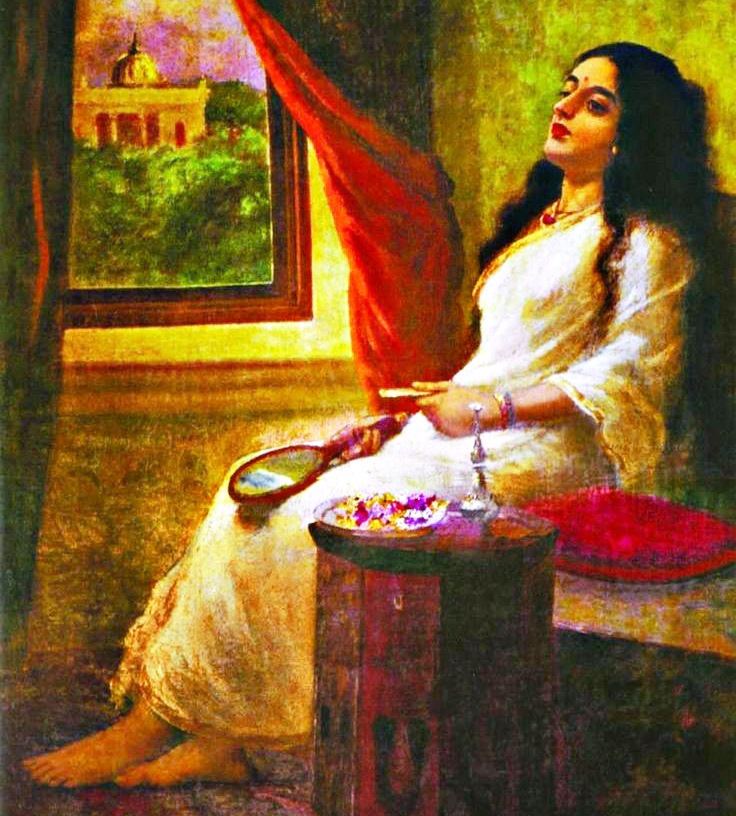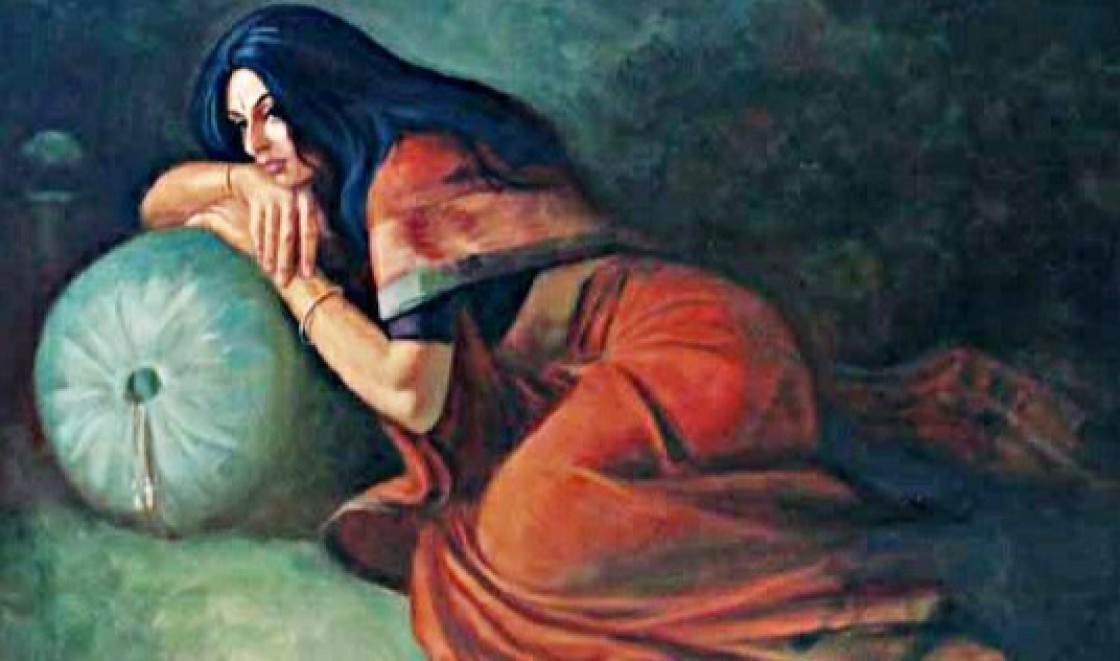Whenever one thinks of Menstruation (रजस्वला) the first thing comes in the mind is the word “disgusting”. Now a days people are getting modern but still have their “narrow minded” thoughts of considering Menstruation (रजस्वला) as disgusting, impure, etc. & on the other hand doesn’t want to follow the guidelines of our scriptures of not touching a woman during her Menstruation (रजस्वला), because while doing so it makes them “ancient”, “backward” & “narrow minded”. Many men & women thinks that not touching a woman during her Menstruation (रजस्वला) is a myth & due to lack of knowledge they think that illiterates & ancient people used to follow such tradition; & apart of this there is no reason in not touching her. But such thinking is absolutely wrong. There are so many scientific reasons for not touching her during Menstruation (रजस्वला). This article will give clear explanations to those who do not have correct knowledge & reasons for not touching a woman during Menstruation (रजस्वला). There is nothing like pure or impure about a woman in Menstruation (रजस्वला). Irrespective of various stories & controversies that surround Menstruation (रजस्वला), here you’ll find some logic as to why primarily such a practice was begun which still many follows till date.
The one who holds onto Dharma, sustains this life blissfully. Dharma holds the people. It prevents the soul from spiritual degeneration. Both, this world as well as the world hereafter is thought upon Dharma. Dharma is not for momentary happiness; Dharma leads to Eternal Bliss. Therefore, Dharma seems like an obstacle for those who are longing for momentary pleasures. But Dharma appears like nectar to those wise ones who are longing for peace & healthy life as well as desire for the betterment of life after death & next births. Many people have respect for Dharma, but does not have knowledge regarding it or maybe there is the absence of true knowledge. A perfect definition of Menstruation (रजस्वला) is given by Dhanvantari is that;
मासेनोपचितं काले धमनीभ्यां तदार्तवम्।
ईषत्कृष्णं विगंधं च वायु योनिमुखं नयेत्।।
Meaning: Impure blackish blood (आर्तवम्) having a bad odour, collects in the female body during a month, flows through the artery & discharges from the downward route is called Menstruation.
According to the Scriptures, the duration of the Menstruation (रजस्वला) is;
तद् वर्षा द्वादशात्काले वर्तमानमसृक् पुनः।
जरापक्व शरीराणां यति पञ्चाशतः क्षयम्।।
Meaning: Menstruation starts by the age of 12 years & gradually decreases & stops as old age nears or by the age of fifty years.
Therefore, a girl getting Menstruation (रजस्वला) is known as Rajaswala (रजस्वला) in Sanskrit which literally means a woman in her course i.e., Menstruating woman. Till the age of 08 years, she is known as “Gauri” (a girl), in the 9th year she is known as “Rohini” (a girl) & in the 10th year she is known as “Kanyaa” (a young girl). And on getting Menstruation (रजस्वला) she is known as Rajaswala. It is not always necessary that Menstruation (रजस्वला) begins at the age of 12 years. Sometimes it may begin between 12 to 16 years. It may even get delayed in cold regions. Her diet & structure determines when she will come of that age.

Aspects of not touching a woman during Menstruation (रजस्वला) –
There are so many myths we have heard & read about Menstruation (रजस्वला) on the internet or somewhere else. Not touching a woman during Menstruation (रजस्वला) is not a myth, it is connected to the science & for the well-being of women. During Menstruation (रजस्वला) the heat in her body increases. This happens as the egg breaks down the uterus destroying the wall & it is thrown out as blood. In order to build the uterus wall again, the body begins its work immediately. For this as we all know, the body needs energy. Heat is a form of energy which is even otherwise maximum in a woman’s body. During Menstruation (रजस्वला) the heat in a women’s body increases than usual (one may check the temperature of a woman during normal days & during Menstruation).
According to the Ayurveda, Menstruation (रजस्वला) is a purification & the detox process for women. Far from it making a woman unclean or impure, the cycle helps in self-purification. It is the body’s mechanism of removing toxins & impurities. In fact, the cycle is seen as an advantage that only the woman has. Due to this reason, women are considered as sacred & worshipped as a Goddess as she is the life-giver & in her absence it is impossible to give birth to a child. So, one should not consider her as impure. She is not impure during her Menstruation (रजस्वला) but she undergoes in cleansing process & the wastage which comes out during this period is impure same as excreta.
Many foreigner scholars have done many researches regarding the vibrations & behaviour of a woman during her Menstruation (रजस्वला). By examining the menstrual blood, a toxin named “menotoxin” was found. Dr. Carloy concluded about Menstruation (रजस्वला) & its harmful effects after investigating the same. Once he got tired after a long working hour in his laboratory so, he came out & sat in the patio/ backyard. While resting on a chair he saw a beautiful bloomed flower. On seeing the bloomed fresh flower, he got delighted & so; he called his maid & pointed towards the flower & asked her to pluck it & get it for him. The maid got the flower. Dr. carloy got confused after looking at the flower & asked her the reason of bringing this flower while he pointed to the fresh flower & not the withered one. To this, the maid replied that it was the same flower that he pointed. Dr. Carloy went near the plant & saw that the flower he asked for was missing. He started thinking & after further investigation he came to know that the maid was menstruating. Later, examining the Menstruation (रजस्वला) blood, he came to know that it is because of the adverse effect, her heat & negative-energy of the blood consisting menotoxin & due to which the flowers, vegetables, cooked food, etc. gets affected.
According to the other research of Dr. Bela Schick, a very popular doctor. As a respectable doctor he used to receive flowers from his patients all the time. One day he received one of his usual bouquets from a patient. He asked one of his nurses to put the bouquet in some water. The nurse politely declined. Dr. Schick asked the nurse again & again, but she refused to handle the flowers. When Dr. Schick questioned the nurse about the reason of not placing the flowers in water, she explained that she is in her Menstruation course & during her Menstruation (रजस्वला) when she touches flower it gets withered. So, to get to the actual conclusion, Dr. Bela Schick decided to do an examination & he took half of the flowers from the bouquets & placed it in water & other half he gave it to the nurse who was menstruating to place it in water. At the end of the day, he saw that, the flowers that were not handled by a menstruating nurse were still fresh & blooming, while the flowers that were placed by a menstruating nurse got withered. This was the study of the menstrual toxin, or menotoxin, a substance which flows from woman’s body through blood & even in the sweat of menstruating woman. Such researches are still going on since long time with the same conclusions that, “one should not touch a woman during Menstruation (रजस्वला)”. And because of such reasons, nowadays even foreigners are accepting & following the same guidelines & adopting the lifestyle of Hindus.
Although the non-observation of the rules does not bear ill-effects due to the past merits (पुण्यम्), but this does not mean that the rules are of no use. Many women chant god’s name/ shlokas/ mantras etc., even during Menstruation (रजस्वला). It is not their fault. At present many writings are misguiding people because of which menstruating woman stops observing rules of conduct which leads the woman & her family to bear some critical consequence like disputes in the family, financial problems, illness, etc. According to the Ayurveda, if in ignorance, negligence, greediness or being subject to destiny; a menstruating woman does not follow the rules then she may suffer some serious circumstances. According to the book “Resolving the doubts on Gayatri” (ગાયત્રી વિષયક શંકાનું સમાધાન), it is stated that, “sweat, urine & the mucus of the eyes & nose, etc flows from holes of the body are same as menstrual bleeding.” & “These excreta are like menstrual bleeding.” This explains that every human being gets sweat, urine, mucus, excreta every day & we all know that one should not enter the temple without taking bath after visiting toilet, then how can a woman who is getting continuous blood discharge enter the temple?? One can enter the temple or go near God only when he/she is clean not only through mind & but through body also.

An exact example is the Kamakhya temple. It is the temple of Goddess Kamakhya. Kamakhya temple is one of the 51 Shaktipeethas (शक्तिपीठम्) (Abode of Goddess). According to the Shiva Purana, when Goddess Sati abandoned her body through Yoga Fire (योगाग्निः), Lord Shiva lamented & took Goddess Sati’s body with him & he kept on lamenting for many days holding her body. Later Lord Vishnu released his Sudarshana Chakra (सुदर्शनचक्रम् – a disk-like weapon) & Sati’s body fall apart into pieces & those pieces of her body fell on the earth, which are known as Shaktipeethas (शक्तिपीठम्) (Abode of Goddess) which were then established by Lord Shiva. Different parts of her body fell on different places. The genital (योनी) part of Goddess Sati fell on the Nilachal hill in the western part of Guwahati city, Assam. Inside the temple there is a sheet of stone that slopes downwards from both sides meeting in a Yoni-like (female genital) (योनी) with 10 inches deep. This hollow is constantly filled with water from an underground constant spring. It is worshiped as the Goddess Kamakhya herself & considered as most important peetha (abode) of the Adi-Shakti i.e., Primordial matter (आदि शक्तिः). The Ambubachi Mela is celebrated during the monsoon season every year at the Kamakhya temple. It is celebrated as the yearly Menstruation (रजस्वला) course of Goddess Kamakhya. The temple remains closed for three days as Goddess undergoes in her Menstruation (रजस्वला) cycle. During these three days some restrictions are observed by the devotees like not cooking, not performing puja or reading holy books, no farming, etc. After three days Goddess Kamakhya is bathed & other purification rituals (शुद्धिकरणम्) are performed to ensure that the Goddess retrieves her purity. Then on the fourth day the doors of the temple get reopened & the devotees are allowed to enter the temple & worship Goddess Kamakhya.
As Menstruation (रजस्वला) is considered as auspicious & a boon to a girl so, when a girl gets her first Menstruation (रजस्वला) it is celebrated as a festival in Hinduism. On the first menstruation on her fourth day, she is bathed first from head to toe with clean water, then with Panchamruta (पञ्चामृतम्) (a collective of five sweet things) i.e., bathed with cow’s milk, then curd, then cow-ghee, then honey & then rock sugar. Later with red turmeric powder (कुंकुमः) & rice & then again bathed with clean water. This day is celebrated as a festival as the girl enters in her youth & eligible to give birth therefore, family & friends are invited to celebrate this festival & the feast is offered. This tradition may differ from region to region & tradition to tradition. But the method of bathing remained similar in every region.

Guidelines to follow by a woman during Menstruation (रजस्वला) –
- She should sleep on the floor for three days. During ancient time there were only mattresses made up of cotton because of which women used to sleep on the floor or on the jute cloth but, now a days we do get mattresses made up of sponge, so one may use the latest sponge mattress.
- She should not touch anyone or anything (i.e., she cannot touch a person, cloths, sofa, cupboard, etc. & she should not enter the kitchen.), also she cannot touch another woman in Menstruation (रजस्वला).
- She can use the clothes/ bedsheet/ blanket made up of wool or silk but in case she uses clothes made up of cotton then she should wet it thoroughly with water after which family member can touch it & wash it off.
- She should not touch any utensils. During lunch/ dinner she can use disposable plates & glass or she has to wash her own plate & glass & after letting it dry family member can touch it & they should wash it again before using it.
- She cannot go in front of her husband frequently & she should not stand in front of her husband when he wakes up in the morning.
- She should not touch vegetables, grains, spices during her Menstruation (रजस्वला).
- She can touch her baby till she feeds her milk, but once the baby starts taking solid food, she should not touch her baby. If a three-year-old child is touched, he/she should be purified by sprinkling of pure water (i.e., Gangajal, Narmadajal, etc.) & if five-year-old or above five-year-old child is touched, he/she should be bathed, same is applied to the adults. Special care should be taken when the boy has initiated with the sacred thread ceremony (यज्ञोपवीतसंस्कारः), such boy/men should not touch a woman during her Menstruation (रजस्वला) but if by mistake he touches her, he has to take bath then he should follow puja ritual & change her sacred thread (यज्ञोपवीतम्).
- She should follow this guideline for three days of her Menstruation (रजस्वला) & on the fourth day she should take bath from head to toe & shampoo her hair after which she can touch everywhere but, she cannot visit temple, till she completes her 6th day (even if menstruation stops on 3rd or 4th day, she should not visit temple till she completes 6th day).
- Sometimes it happens that Menstruation (रजस्वला) starts before completion of one month in that case, after the completion of Menstruation (रजस्वला) if a woman gets her Menstruation (रजस्वला) again within 18 days, then she should not follow such restrictions of not touching. But if the Menstruation (रजस्वला) begins on the 19th day then, it is stated that;
एकोनविंशतेरर्वागेकाहस्याः ततोद्वयहम्।
विंशत्प्रभृत्र्युत्तरेषु त्रिरात्रमशुचिर्भवेत्।।
Meaning: On the 19th day impurity is for one night, on the 20th day the impurity is for two nights, & after 20 days the impurity is for 3 nights as usual.
- These Menstruation (रजस्वला) guidelines should also be observed during the journey or pilgrimage. Especially one should cautiously follow these guidelines while they are visiting holy places because it is said that;
अन्यक्षेत्रे कृतं पापं तीर्थक्षेत्रे विनश्यति।
तीर्थक्षेत्रे कृतं पापं वज्रलेपो भविष्यति।।
Meaning: Sin committed at any place gets eliminated at a holy place. But sin performed at the holy place becomes difficult to get rid of.
So, it is highly advisable that woman should not visit holy places during Menstruation (रजस्वला) but if she gets her Menstruation (रजस्वला) during her visit to holy place then, she should strictly follow these guidelines.
- If a woman gets her Menstruation (रजस्वला) in between the sacrificial ritual or ritual vow then such rituals should be carried by a representative (a representative should be her husband/ son/ father/ the priest).
- She should not go in front of a dead body during her Menstruation (रजस्वला) as the dead body is covered with highly negative energy & releasing bacteria & menstruating woman prone to attract negative energy & bacteria easily so to keep her health safe, she should avoid going near a dead body.
- If a woman gets her Menstruation (रजस्वला) few days before her marriage, then she should fast for three days & for the expiation she should offer ornaments to the Brahmin girl & her father should offer cow or feed food to a Brahmin after which his father is eligible to perform Kanyadan (कन्यादानम्). Also, if a woman gets her Menstruation (रजस्वला) during her marriage ritual, she can perform the ritual after taking the purification ceremonial (शुद्धिकरणम्) head to toe bath.
- When a woman dies during her Menstruation (रजस्वला) then, barley flour should be applied on her dead body, after which her dead body should be bathed 108 times with winnowing basket (शूर्पः) & after that ashes (भस्म), cow dung, mud, kush water, cow milk, curd, ghee, cow urine & cow dung should be applied & then bathed it with clean water & then funeral rites should be performed.
- If a menstruous woman makes any sort of mistake or fails to follow the guidelines then as a purificatory rite (to eliminate the sin) she should perform the vow of Rishi Panchami (ऋषि पञ्चमी).

The vow of Rishi Panchami (ऋषि पञ्चमी) –
The sages have done a great favour to us by prescribing the expiatory rites (प्रायश्चित्तम्). Who in this world has not committed sin or mistake during the lifetime? Highly learned men also make mistakes. Not only scholars, there is a possibility of making a mistake by everyone, be it wise or fool, good or evil, young or old, ignorant or learned. And the subject of merit-demerit (पुण्यपापम्) is very subtle. But the difference is that the virtuous man repents after making a mistake & expiates (प्रायश्चित्तम्) while others who are ignorant does not expiates (प्रायश्चित्तम्). The mind is relaxed by performing expiation (प्रायश्चित्तम्). If a woman makes mistakes during menstruation, then as an expiatory rite she should perform the vow of Rishi Panchami (ऋषि पञ्चमी). This vow is observed on the fifth day of the fort night of Bhadrapada month (भाद्रपदः, ०५ शुक्लपक्षे). This vow is highly significant.
According to one historical account, once in the region of Vidarbha, there lived a Brahmin named Uttanka with his wife named Sushila. They had two children – a son & a daughter. The son was very virtuous & he was master of Vedas & Vedangas. The daughter was married to a noble family, but soon after her marriage, she became widow & came back to her father’s house. She was chaste, virtuous & well-behaved. One day, after finishing her daily chores, she slept on the stone slab & later, her body got infected by worms & she fainted. Her mother saw this & she started lamenting, she cleaned her body & carried her to her father & asked sage Uttanka for the reason of such suffering as the daughter is virtuous & well-behaved, due to which karma she is bearing such grief. To find out the reason, sage Uttanka meditated upon Lord Vishnu & he saw the past actions of his daughter in her past births in his meditation. Later, he explained his wife that their daughter did not committed any sin in this birth or in the previous birth but, in the 7th birth she was a Brahmin woman &;
रजस्वला च संजाता भांडादीन्यस्पृशत्तदा।
अस्यास्तु पाप्मनातेन जायते कृमिवद्वपुः।।
Meaning: At that time, during Menstruation (रजस्वला), she had touched all the vessels. She is suffering the infection caused by worms because, she did not follow the regulations which are to be followed during Menstruation (रजस्वला). Oh beloved! The woman is considered clean on the fourth day of Menstruation (रजस्वला). As;
प्रथमेऽहनि चाण्डाली द्वितीये ब्रह्मघातिनी।
तृतीये रजकी प्रोक्ता चतुर्थेऽहनि शुद्ध्यति।।
Meaning: On the 1st day, a Menstruation woman is known as an outcast woman (चाण्डाली), on the 2nd day she is known as the killer of Brahmins (ब्रह्मघातिनी), on the 3rd day she is known as a washer-woman (रजकी) & on the 4th day she is purified (शुद्धः).
This is what our Scriptures suggest. So, to nullify the sins committed during the Menstruation (रजस्वला) of this & past births, every woman should observe the vow of Rishi Panchami (ऋषि पञ्चमी). Every Hindu has different methods & traditions of observing the vow of Rishi Panchami according to different region. But fasting on this day & eating only Sama (barnyard millet) & okra (lady finger) in vegetables is mostly observed everywhere in India. On this day woman worships the Seven Sages (सप्तर्षिः) (names of the seven sages- Kashyapa, Atri, Vasishtha, Vishvamitra, Gautama, Jamadagni & Bharadvaja) according to the tradition & eats only Sama (barnyard millet) & okra (lady finger) on this day. If a woman is in Menstruation (रजस्वला) on this day, then she should not eat Sama (barnyard millet) as, Sama (barnyard millet) is the most auspicious grain. Another reason is, Sama (barnyard millet) is warm to the body & if the woman during Menstruation (रजस्वला) eats Sama (barnyard millet) her body will collect more heat, which will adversely affect her body due to this reason, if a woman is in Menstruation (रजस्वला) during Rishi Panchami, she should avoid eating Sama (barnyard millet).

Scientific reasons of not touching a woman during Menstruation (रजस्वला) –
- We have noticed that when the food is kept outside during summer it gets spoiled due to heat. The temperature during summer is hotter which, leads to increase in the bacterial activities & this bacteria spoils the food. Similarly, during Menstruation (रजस्वला), a woman’s temperature is higher & she releases the heat through her body due to which, when she touches food/ grains/ spices, etc. it gets spoiled. The well-known example is of pickle & papad; even due to the shadow of menstruating woman the pickle & papad gets spoiled. Because of this reason menstruating woman should not touch any edible things & this is the reason she should not make lunch/ dinner for three days.
- We all give out aura, which is a form of energy. Aura can be positive or negative or sometimes mixed, it depends on the person’s thoughts, actions, eating habits, etc. We are constantly exchanging energies with each other while handshaking or hugging or touching each other. During Menstruation (रजस्वला) a woman’s aura gets covered with negative energy as she is releasing heat from her body & due to menotoxin. While touching her during menstruation, one attracts those negative energy within which affects his/her mental & physical health.
- As we all know that during these three days woman suffer some physical & emotional disturbance as she is in her cleansing process. She suffers muscles pain, back pain, lower back pain, abdominal cramps, headache, bloating, trouble sleeping, fatigue, nausea, mood swings, etc. due to which it is tough for her to engage in household work & because of this reason, since ancient time she is not allowed to engage in any work & she just have to rest for three days so that it becomes easy for her to cleanse herself while resting.
- Heavy exercise should also avoid during Menstruation (रजस्वला) because it may lead to irregular Menstruation. Weakness & tiredness during Menstruation (रजस्वला) is another reason of not engaging in household or outside chores. When she does heavy workouts, it affects her reproductive system & her child will born mischievous.
- Everyone has heard or read that a menstruating woman should not allow to go out which many thinks that it’s a myth. But during ancient times the surroundings were filled with the forests wherein many wild animals’ abode. Animals can sense blood easily. In order to prevent women from being a target of the wild animals they were restrained from going. This is not the case in today’s era, so women can go to school, college or office while following the regulations.
- As we have read in the 14th article “Why Hindus go to the temple for the sight (दर्शनम्) of the Deity?”, we have seen the importance of the temple & the Deity keeps on recharging the surrounding area with positivity, when a menstruating woman enters the temple the heat, she releases starts spreading negative energy which affects the surround area of the temple & the idol of the Deity too. Because of this it results that the idol of the Deity will start emitting both positive as well as negative energy to the devotees. So, it is advisable not to visit the temple during Menstruation (रजस्वला). As you have read about the Kamakhya temple where the Goddess is keeping herself away from her devotees during her Menstruation (रजस्वला) then why woman can’t do the same? Another reason is we do not visit temples while releasing excreta/urine as we all know that the purity of body is the first thing one should follow during temple visits then how can a woman who is releasing blood wastage continuously can visit temple?
- According to the Ayurveda when a woman does not follow the guidelines then the defects will appear in her child. It is given that, when she cries during Menstruation (रजस्वला) her child may born with deformed eyes or blind & it may lead a woman to a psychological disorder.
- According to Ayurveda, applying oil to hair or body, then her child may born with skin diseases (leprosy, vitiligo, etc) & it leads a woman to generate more heat so, she may feel fatigue or her skin prone to get pimples, spots, etc.
- As Ayurveda suggests, woman should not run here & there in a hurry during Menstruation (रजस्वला) otherwise her child will be born with fickle mind & she may get more cramps or she will suffer the increase in blood flow.
- When a woman talks excess or loudly, it may lead to more abdominal cramp or she may feel tired & she will bear a child who does useless talk.
- According to the Ayurveda, a woman should avoid intercourse during Menstruation (रजस्वला). As human body releases heat during intercourse but, during menstruation woman releases those heat in double due to which it leads to the infertility in male or female & the internal genital parts of male & female get infections like; chlamydia, genital warts, herpes, syphilis, etc.
Thus, hygiene is related to the body while purity is related to the mind rather than the external means. The menstruous woman should observe purity along with hygiene. When these two are observed together, the result will definitely be auspicious. For the preservation of health, progeny & youth, menstruating woman must follow such Scriptural guidelines which will lead her to the righteous merits & healthy fertile life. Women are not considered as impure in Hinduism &, Menstruation (रजस्वला) is a blessing as this makes a woman fertile enough to bring a life on this earth. Hinduism is not a myth & whatever Hindus perform in their daily routine, is truly connected to the science & for a healthy life only. So, before questioning or insulting such richness of our Scriptures & our Sages please do try to get the true knowledge behind it as our Scriptures, have all the answers within, we just have to read it & understand it properly.
चैत्रः शुक्लपक्षे १४, २०७७
